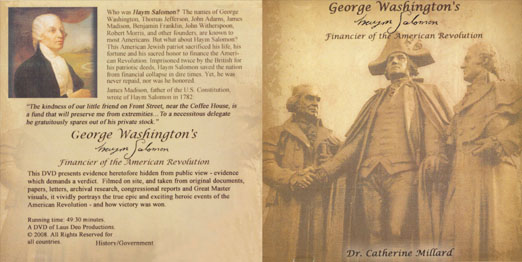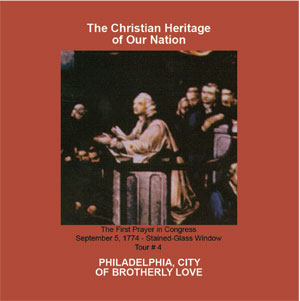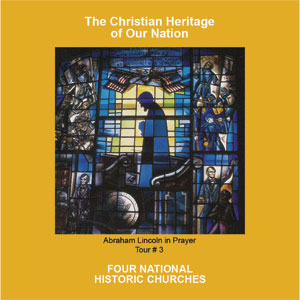Benjamin Franklin’s 1775 Abolition Society – “Pennsylvania Society for Promoting the Abolition of Slavery.”
In 1775, Benjamin Franklin organized, with Dr. Benjamin Rush (Signer of the Declaration of Independence), the oldest Abolition Society, “Pennsylvania Society for Promoting the Abolition of Slavery, the Relief of Free Negoes Unlawfully Held in Bondage, and for Improving the Condition of the African Race. Its first two presidents were Dr. Benjamin Franklin and Dr. Benjamin Rush.
The Society was legally incorporated in 1789. During this year, the Philadelphia Yearly Meeting sent a memorial in behalf of the abolition of slavery to the infant United States Congress. Within a few days, a petition of the Pennsylvania Abolition Society, signed by its venerable President, Benjamin Franklin, appeared in Congress. This was one of the last official acts of this celebrated founding father prior to his death in 1790.
The petition was almost a prophetic document. Its initial paragraph was alive with the spirit which inspired and characterized the Declaration of Independence:
“From a persuasion that equal liberty was originally the portion, and is still the birthright of all men, and influenced by the strongest ties of humanity, and the principles of their institution, your memorialists conceive themselves bound to use all justifiable endeavors to loosen the bands of slavery and to promote a general enjoyment of the blessing of freedom. Under these impresssions, they earnestly entreat your serious attention to the subject of Slavery, that you would be pleased to countenance the restoration of liberty to those unhappy men, who alone in this land of freedom are degraded into perpetual bondage, and who amidst the general joy of surrounding freemen, are groaning in servile subjection; that you will devise means for removing this inconsistency from the character of the American people; that you will promote mercy and justice towards this distressed race, and that you will step to the very verge of the powers vested in you, for discouraging every species of traffic in the persons of our fellow men.” 1
Pennsylvania having enacted a gradual emancipation law in 1780, in 1791 a bill was introduced in the Assembly, which, if made a law would have permitted officers of the United States Government to hold slaves in Pennsylvania. The Abolition Society organized and conducted a vigorous opposition to the bill, which was subsequently defeated. The Society thus scored its first substantial legislative victory. In 1813 the Society opened a school in a building erected for the purpose on Cherry Street, for the education of the children of slaves. In 1815, by resolution of the Society, this building was named Clarkson Hall, in honor of the English Abolitionist, Thomas Clarkson.
In the “Works of the Late Doctor Benjamin Franklin…” published in 1793, we read Franklin’s exposé of The Slave Trade, which he wrote on March 23, 1790, a month prior to his death:
“On the Slave Trade
Reading in the newspapers the speech of Mr. Jackson in Congress, against meddling with the affair of Slavery, or attempting to mend the condition of Slaves, it put me in mind of a similar speech, made about one hundred years since, by Sidi Mehemet Ibrahim, a member of the divan of Algiers, which may be seen in Martin’s account of his consulship, 1687. It was against granting the petition of the sect called Erika, or Purists, who prayed for the abolition of piracy and slavery, as being unjust. – Mr. Jackson does not quote it; perhaps he has not seen it. If, therefore, some of its reasonings are to be found in his eloquent speech, it may only show that men’s interests operate, and are operated on, with surprising similarity, in all countries and climates, whenever they are under similar circumstances. The African speech, as translated, is as follows:
‘Alla Bismillah, etc. god is great, and Mahomet is his prophet.
Have these Erika considered the consequences of granting the petition? If we cease our cruises against the Christians, how shall we be furnished with the commodities their countries produce, and which are so necessary for us? If we forebear to make Slaves of their people, who, in this hot climate, are to cultivate our lands? Who are to perform the common labours of our city, and of our families? Must we not then be our own Slaves? And is there not more compassion and more favour due to us Musselmen, than to those Christian dogs? – We have now above fifty thousand Slaves in and near Algiers. This number, if not kept up by fresh supplies, will soon diminish, and be gradually annihilated. If, then, we cease taking and plundering the infidel ships, and making Slaves of the seamen and passengers, our lands will become of no value, for want of cultivation; the rents of houses in the city will sink one half; and the revenues of government, arising from the share of prizes, must be totally destroyed. – And for what?
To gratify the whim of a whimsical sect, who would have us not only forebear making more Slaves, but even manumit those we have. But who is to indemnify the masters for the loss? Will the State do it? Is our treasury sufficient? Will the Erika do it? Can they do it? Or would they, to do what they think justice to the Slaves, do a greater injustice to the owners? And if we set our Slaves free, what is to be done with them? Few of them will return to their native countries; they know too well the greater hardships they must there be subject to. They will not embrace our holy religion: they will not adopt our manners: our people will not pollute themselves by intermarrying with them. Must we maintain them as beggars in our streets; or suffer our properties to be the prey of their pillage? For men accustomed to Slavery will not work for a livelihood, when not compelled. – And what is there more pitiable in their present condition? Were they not Slaves in their own countries? Are not Spain, Portugal, France, and the Italian States, governed by despots, who hold all their subjects in Slavery, without exception? Even England treats her sailors as Slaves, for they are, whenever the government pleases, seized and confined in ships of war, condemned not only to work, but to fight for small wages, or a mere subsistence, not better than our Slaves are allowed by us. Is their condition then made worse by their falling into our hands? No; they have only exchanged one Slavery for another; and I may say a better: for here they are brought into a land where the sun of Islamism gives forth its light, and shines in full splendor, and they have an opportunity of making themselves acquainted with the true doctrine, and thereby saving their immortal souls. Those who remain at home have not that happiness. Sending the Slaves home, then, would be sending them out of light into darkness.
I respect the question, what is to be done with them? I have heard it suggested, that they may be planted in the wilderness, where there is plenty of land for them to subsist on, and where they may flourish as a free state. – But they are, I doubt, too little disposed to labour without compulsion, as well as too ignorant to establish good government: and the wild Arabs would soon molest and destroy or again enslave them. While serving us, we take care to provide them with everything: and they are treated with humanity. The labourers in their own countries are, as I am informed, worse fed, lodged and clothed. The condition of them is therefore already mended, and requires no farther improvement. Here their lives are in safety.
They are not liable to be impressed for soldiers, and forced to cut one another’s throats, as in the wars of their own countries. If some of the religious mad bigots, who now tease us with their silly petitions, have, in a fit of blind zeal, freed their Slaves, it was not generosity, it was not humanity that moved them to the action; it was from the conscious burden of a load of sins, and hope, from the supposed merits of so good a work, to be excused from damnation. How grossly are they mistaken, in imaging Slavery to be disavowed by the AL KORAN!
Are not the two precepts, to quote no more, “Masters, treat your Slaves with kindness – Slaves, serve your masters with cheerfulness and fidelity,” clear proofs to the contrary? Nor can the plundering of infidels be in that sacred book forbidden; since it is well known from it, that God has given the world, and all that it contains to his faithful Musselmen, who are to enjoy it, of right, as fast as they can conquer it.
Let us then hear no more of this detestable proposition, the manumission of Christian Slaves, the adoption of which would, by deprecating our lands and houses, and thereby depriving so many good citizens of their properties, create universal discontent, and provoke insurrections, to the endangering of government, and producing general confusion. I have therefore, no doubt that this wise council will prefer the comfort and happiness of a whole nation of true believers, to the whim of a few Erika, and dismiss their petition.’
And since like motives are apt to produce, in the minds of men, like opinions and resolutions, may we not venture to predict, from this account, that the petitions to the parliament of England for abolishing the Slave Trade, to say nothing of other legislatures, and the debates upon them, will have a similar conclusion.
HISTORICUS
March 23, 1790.” 2
Benjamin Franklin
To learn more, click here.
____________________
Bibliography:
1
The Oldest Abolition Society, being a Short Story of the Labors of the Pennsylvania Society for Promoting the Abolition of Slavery, the Relief of Free Negroes Unlawfully held in Bondage, and for Improving the Condition of the African Race. Philadelphia, PA.: Published for the Society, 1911. Library of Congress, Rare Book Collection.
2
Franklin, Benjamin. Works of the Late Benjamin Franklin, consisting of His Life, written by himself. Vol. II. On the Slave Trade. London: 1793, pp. 143-150. Library of Congress, Rare Book Collection.























